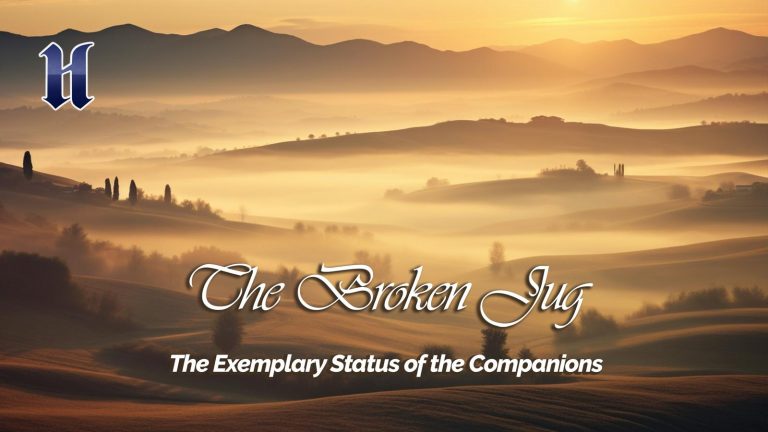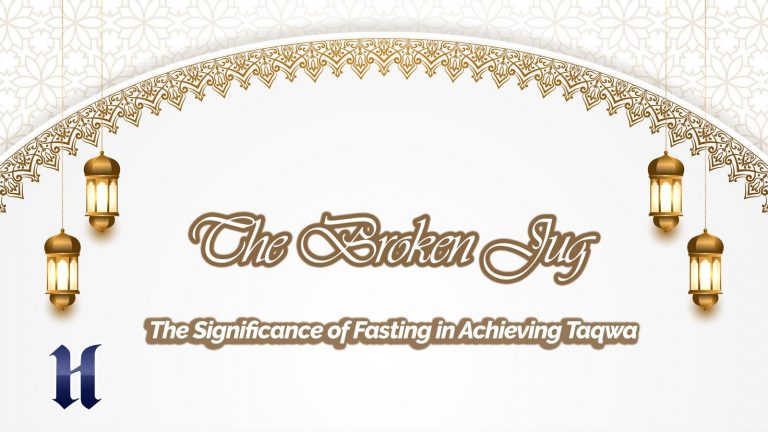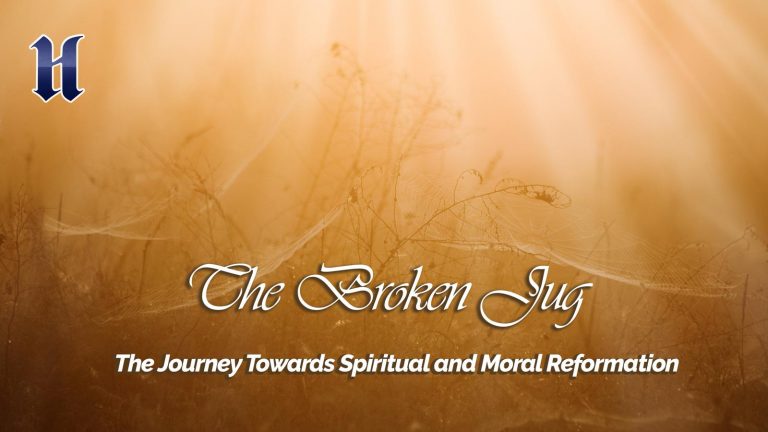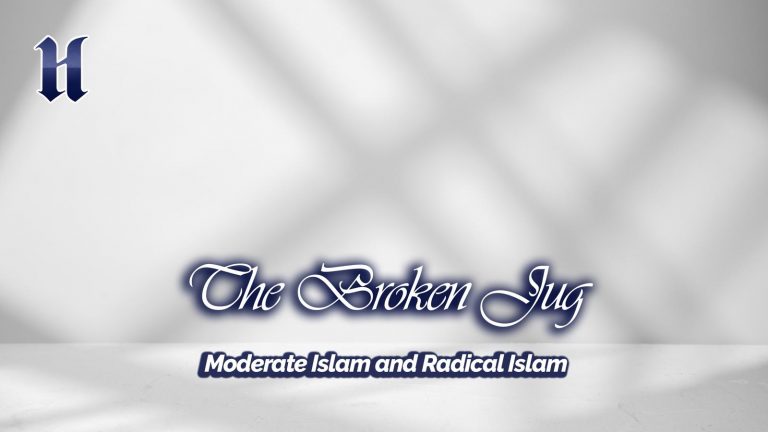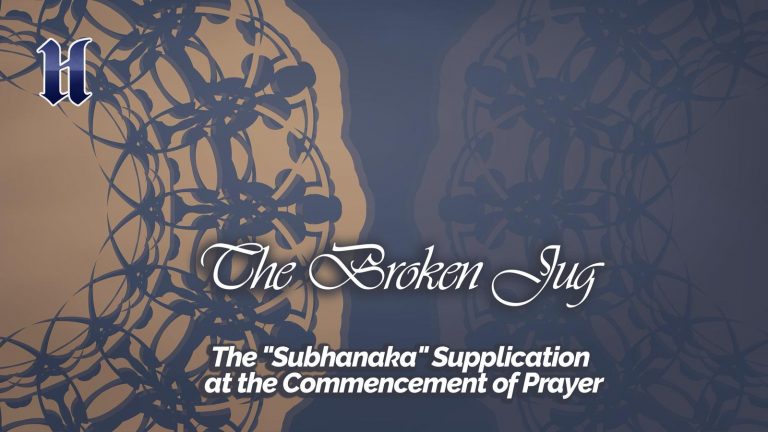Question: What is the significance of altruism in solving humanity’s problems? How can this virtue be acquired?
Answer: The Islamic term for altruism, “ithar” means preferring others over oneself; it is one of the most important values we have lost. What lies under today’s interpersonal and inter-societal tumults, disagreements, and disunities, as well as people’s inability to accept and tolerate others, is the death of the spirit of altruism. And the reason for the death of this spirit is the deterioration of the values of the heart. When the heart degenerates, all of our human values, along with the codes and stamps that endow humans with the best pattern of creation, are obliterated, and Satan will play his game upon the person’s world of thought.
In this respect, at the end of his saying that begins, “The lawful are clear, and so are the forbidden…” the Messenger of God, peace and blessings be upon him, stated, “Beware! In the body there is a piece of flesh that, if it is sound, the whole body will be sound, and if it is corrupt, the whole body will be corrupt. Take care! It is the heart.”[1]
Thus, a person keeping his heart clean from every kind of contamination and dirt, and checking it out at least a few times a day, is a very important factor in terms of preserving one’s spiritual life. A person must be very careful and pray deeply in this respect. A person must even keep away from negative imaginations and thoughts, both of which might leave some ugly traces in the heart. As it is also stated in a hadith, God looks at a person’s heart and evaluates that person accordingly.[2] God Almighty does not treat a person according to his weight, color, height, or the cultural environment he was raised in, but by the purity of his heart. And at the weighing of deeds in the Hereafter, the weight of the heart is considered; and however much the heart turned to God and beat for Him, is how much worth the person will be given.[3]
The Golden Age of the Spirit of Altruism: The Era of Happiness
People with pure hearts will at the same time be full of feelings of beneficence and compassion toward humanity. Instead of living for themselves, they will try to make others live in the true sense by awakening their hearts to God. Essentially, the spirit of altruism depends on this.
The Qur’an draws attention to the virtue of ithar as follows: “…They prefer others over themselves, even though poverty be their own lot” (al-Hashr 59:9). This spirit and thought was very developed in the Era of Happiness. For example, the Messenger of God, peace and blessings be upon him, wished to feed a hungry guest in his blessed home. However, on learning that they had nothing but water to offer the guest, he sent the man to another Companion’s home. As they only had food to suffice for one person, the couple put their children to sleep, turned off the light, and pretended to be eating from their empty dishes together with the guest so that he did not refuse to eat. Thus, they remained hungry while the guest was able to satisfy his hunger.[4]
Mehmed Akif depicts this sublime spirit of ithar in the context of the Battle of Yarmuk. During that battle, Companions such as Harith ibn Hisham, Ikrima ibn Abi Jahl, and Ayyash ibn Abi Rabia were gravely wounded. While their martyrdom was expected, the respected Harith asked for water and another Companion ran to him with a water flask. He was living his final moments and probably had the strength to say only one word. Right at the moment he was taking the flask to his lips, he heard that Ikrima was asking for water and insisted the water to be taken to him. The Companion took the water to Ikrima, but then Ayyash asked for water while Ikrima was just about to drink. Ikrima insisted the water to be taken to Ayyash. The Companion took the water flask to our master Ayyash, but saw that he had become a martyr. When he went back to the others to give them water, he saw that they had been martyred as well.[5]
I had a similar experience, one I will never forget, during a retreat in Buca. While we were eating together, I found a piece of meat in front of me. Then I pushed it to the plate of a guest teacher sitting near me. Then he passed it further for the next person to eat, and after a dozen people passed this meat, it eventually returned to his plate again. As the guest was a wisecracker, he quoted a verse from the chapter Yusuf and said, “Here is our merchandise returned to us” (Yusuf 12:65). The spreading of this altruistic feeling and thought among people is very important in terms of peace in society and establishing a spirit of brotherhood.
Preferring One’s Brother for Positions and Promotions
Although all of these are important examples of altruism, one should not restrict it to issues like eating and drinking. When there is the question of gaining a certain position or title, preferring one’s brother to himself is also very important in terms of altruism. Umar ibn al-Khattab’s attitude in the following situation is a striking and beautiful example:
When the Pride of Humanity died and passed to the horizon of his soul, the Companions gathered, concerned about keeping up the spirit of unity and preventing disintegration in society. They wished to choose a leader as soon as possible. Abu Bakr told the others about the virtues of Umar ibn al-Khattab. He stated his wish to pledge allegiance to him and that Umar should be chosen as caliph. However, Umar ibn al-Khattab held Abu Bakr’s hand right away and pledged allegiance to him by saying, “If there is someone to lead the Muslim community after the Messenger of God, he is Abu Bakr.” As we can see, stepping back from a leading position and giving priority to a brother is a very important form of altruism.[6]
By the way, let me state that we are not in a position to compare the greatness of our blessed masters Abu Bakr and Umar. We do not have the scales to measure the true worth of those great figures. I guess even the scales that measure the deeds of people in the Hereafter will break under the weight of the good deeds by the caliphs Abu Bakr, Umar, Uthman, and Ali, may God be pleased with them. Every one of them is invaluable. They made such spiritual progress that only the title of Prophethood remained ahead of them, which they could attain as there is no Prophet after the Messenger of God, peace and blessings be upon him. Had there been any person to come as Prophet after the Pride of Humanity, it would be them.
Abu Bakr saw Umar as eligible for being caliph and Umar saw Abu Bark as that person. They absolutely did not say something like, “I do this job better, as such and such alluded to my eligibility.” Preferring others over oneself when there is the issue of coming to certain positions and gaining material benefits is a higher form of altruism. This excels altruism having to go with material benefits.
A person with this virtue will not prefer living, but wants to help others live. He wants to courageous say, “I may die if necessary, for what matters is letting the rest of the world live. If the people’s continuity depends on my being sacrificed, may God Almighty let it happen to me quickly!” Otherwise, those who see themselves like a pillar by which the entire world stands, and fantasize that the world will collapse and end when they step aside, are nothing but misfortunate ones with no share of this spirit.
Even in front of the Gate of Paradise
The following scene about the Hereafter is noteworthy in terms of showing how far altruism can go. It is narrated that the noble Prophet was shown a vision of how the rich who spent for the sake of God will meet with the learned ones at the gate of Paradise. Accordingly, the learned ones will say to the rich, “Please, the priority is yours, you enter first. Because, had you not spent from your fortune in the path of God, opened educational institutions and thus prepared opportunities for education, we could not have become learned ones and found right guidance. You were the means of our being on the path of learning and broadening our horizons; we owe you. Therefore, the priority belongs to you.”
And then they will take one step back out of respect. However the generous rich will say, “We are indebted to you; because, had you not opened our eyes thanks to your immense knowledge, nor guided us beautifully and taught us a holistic reading of the laws of religion and the laws prevalent in the universe together, and not showed us the beauty of making lawful gains and then spending for the sake of God, we could not have spent our wealth for the sake of such charity. You showed the way and led us to the thousand-fold profits for what we gave in the world. For this reason, you are also our pioneers here; please, you go first.”
After this sweet conversation, the scholars will go first and they will enter Paradise together with the generous rich.
This conversation between the learned ones and the generous rich should not solely be taken as an account of a future event. It is also a lesson that conveys the depths of their altruism. Imagine that before coming to the gate of Paradise, they go through a very hard questioning and leave behind the Sirat Bridge, which is difficult to pass. In addition, in front of them are the blessings of the dizzyingly beautiful Paradise, which is beyond imagination and has been seen by no eyes and heard by no ears. On seeing those things, a person virtually comes close to fainting out of delight. Imagine that their spirit of altruism continues even in such a situation. By means of this depiction, the Messenger of God shows us the extent of their spirit of ithar.
Such people hear the following words of Bediüzzaman, the wonder of our age, who was an inheritor of the Prophet: “In my life of more than eighty years, I did not enjoy anything as worldly pleasures; my life always passed in battlegrounds, prison houses, and different places of exile and suffering. Neither do I have a passion for Paradise, nor a fear of Hell. Given that I see the faith of my people is saved, I accede to burning in the flames of Hell, for while my body is burning, my heart will become a rose garden.”
A person who hears these words thinks that this voice sounds as if it is coming from the time of the Prophet. I think society needs such an immense spirit of altruism more than air and water.
The Prophet returning to this world of troubles again after seeing, reaching, and surmounting impossible things is very important in terms understanding the ultimate point the spirit of altruism can reach. In that journey, the noble Messenger of God met Prophets Jesus, Moses, Abraham, and Adam, peace be upon them; after receiving their welcome and veneration, he entered Paradise and saw its dizzying attractions.[7] And then he beheld the beauty and perfectness of God Almighty. Who knows what a feeling it is for the human soul to behold God! In Badu’l Amal, it is stated that believers who are honored to see God will even forget the blessings of Paradise.[8] That is to say, all of the paradisiacal mansions, fruits, and heavenly beauties—which would light up the entire world with a single projection of their beauty—are ignored at that moment. The Messenger of God, who was blessed with all of these and reached some point between contingency and necessity, returned back to live among people, in order to let his followers hear about the blessings he saw, felt, and sensed.
After telling us that the Messenger of God, peace and blessings be upon him, returned to the world after such a journey, Abdulquddus said, “By God, had I attained those blessings, I would not return back to the world.”
Another one commented on this, saying, “Here is the difference of status between the Prophets and the greatest saint.” The Prophets purely exist for the sake of making others live. Saintly persons may in a way wish to make progress and attain spiritual delights.
In addition, as the Messenger of God reached such horizons while in the world returned back to live among his people again in order to hold their hand and guide them, it is possible that if he hears the cries of those from his community who went to Hell, who knows? Maybe he will go near it, lend a hand to them, and wish to take them out of Hell. All of these are forms of altruism. They are different wavelengths of manifestation on the horizons of Prophethood.
Antidote for Clashes and Fights
Today, we desperately need the spirit of altruism, which is very closely related to faith, the religious life of the heart, being close to God, compassion, and helping others live in the true sense. What we need today are chivalrous souls who will push aside the world and its contents which appeal to fancies and desires; souls who will solely live for the sake of making others live, and will pray as such:
“My God, my life may have real value if I will serve as a means for making others live. Otherwise, I feel disgusted by this meaningless life with no benefit to others and which does not revive their hearts; I seek refuge in You against it. Save me from this heavy burden please!”
Those who always say “I” and index everything to their egotism have always caused people to clash. They provoke feelings like envy, jealousy, intolerance, and rivalry, and consequently bring society to a state in which one would not like to live.
However, there are thousands of people who could do what such egoists boast to have achieved. If only there had been a little bit of trust in God. If only those who talked about the Companions and the Prophets would decide to walk their talk a little bit. If only they took a step back when necessary and gave responsibility to those eligible for a certain task. If there is an elixir that can fix a disintegrated society, it is this very spirit of altruism, which must be rekindled in hearts.
Otherwise, it will not possible to thoroughly solve the problems we face, either by diplomacy, political games, tricks, or the strategies devised by think-tank organizations. If it were possible, our society, which has experienced different changes and metamorphoses from yesterday to now, would have reached more advanced horizons long ago. But as it stands, our society is still monstrous, and people are virtually eating one another like cannibals. For God’s sake, is it any different from cannibalism if you bombard civilians, use poisonous gas, deprive others of their right to live, act with Islamophobia, and commit different forms of oppression against certain groups? All of these are nothing but different forms of monstrosity. And the way to eliminate them is concentrating on becoming human anew and trying to fulfill what being endowed with the best pattern of creation calls for.
[1] Sahih al-Bukhari, Iman, 39; Sahih Muslim, Musaqat, 107.
[2] Sahih Muslim, Birr, 32–33; Sunan Ibn Majah, Zuhd, 9.
[3] See: Ash-Shuara 26:88-89.
[4] Sahih al-Bukhari, Manaqibu’l-Ansar, 10; Tafsir Surah (59) 6; Sahih Muslim, Ashriba, 172–173.
[5] Al-Hakim, Al-Mustadrak, 3/270; Ibn Abdilbarr, Al-Istiab, 3/1084.
[6] Sahih al-Bukhari, Manaqib Fada’il al-Ashab, 5; Jana’iz, 3; Maghazi, 83; Sunan an-Nasa’i, Jana’iz, 11; Sunan Ibn Majah, Jana’iz, 65.
[7] Sahih al-Bukhari, Bad’al-Khalq, 6; Anbiya, 43; Manaqibu’l-Ansar, 42; Sahih Muslim, Iman, 259, 264.
[8] Al-Ushi, Badu’l Amal, 41.
This text is the translation of “Îsâr Ruhu.”


